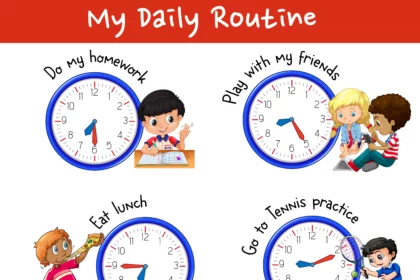Parenting is an incredible journey, filled with moments of joy, laughter, and, let's be honest, a few challenges! One particular area that often brings a unique set of experiences is raising children with strong personalities – what we sometimes call “spirited children”. These kids are full of energy, passion, and a deep sense of self, and while they can be incredibly rewarding, they also tend to come with their own specific set of parenting puzzles to solve. If you're a parent of a spirited child, you’re not alone!
Before we dive deeper, it’s important to remember that “spirited” is not a label that suggests something is wrong. Think of it more like a descriptor of a child’s powerful inner drive and their way of interacting with the world. It's a personality type characterized by high energy, strong opinions, and a tendency to push boundaries. And while this can sometimes feel like a battle, it’s essential to remember these are often incredibly passionate, creative, and intelligent children.
Understanding the Unique Challenges
Raising spirited children presents specific challenges, and understanding these hurdles is the first step in moving towards positive parenting. One of the most significant difficulties is simply getting through to them. Their way of thinking and learning is often quite different from that of their more compliant peers. For instance, a child who's naturally cautious or calm might readily heed your request not to climb on the table. But a spirited child? They might see that request as an invitation to hop up there just moments later! This isn't necessarily defiance; often, it's their way of testing boundaries and expressing their inherent need for autonomy.
These children often perceive rules and expectations differently. They aren’t necessarily trying to be difficult; rather, they may be exploring cause and effect, or they might feel a need to assert their own will. This can be incredibly frustrating for parents, who often feel like they’re speaking a different language. Therefore, it's vital to recognize that the same strategies that work effectively with some children may simply not be suited for a spirited one. They require a different, more intentional approach to discipline and guidance.
The Need for Connection and Understanding
The first crucial step in positively navigating the challenges posed by spirited children is to foster a deep connection. These children intensely crave understanding, and when they feel unheard or labeled, their behaviors might intensify. It's important that you, as a parent, try your best to see the world through their eyes. Ask yourself, “Why might they be acting this way?”, instead of immediately assigning a negative label to their actions and behavior.
Make an effort to show them love and affection consistently. A strong bond strengthens their trust in you and your guidance. When they feel seen, understood, and loved exactly as they are, they're more likely to cooperate, especially if they understand you're on their side. This isn’t about giving in or accepting disrespect; it’s about first addressing their need for secure attachment, and then working to guide and manage challenging behaviors.
Take the time to engage with them in a way that’s meaningful to them. This might mean playing active games, engaging in creative activities, or simply having thoughtful conversations. The key is to show them respect as individuals and acknowledge their perspectives and insights, even when you don’t agree.
Navigating Challenges and Respect
Another crucial aspect of raising a spirited child is knowing how to navigate challenging behaviors and situations without dampening their spirit. It’s a delicate balance between setting clear boundaries and allowing room for individuality and their strong personalities. You will need to adapt strategies for discipline and conflict resolution to meet their unique needs.
Instead of immediately reacting with anger or punishment, take a moment to understand the root of their behavior. Are they feeling unheard or misunderstood? Are they struggling to express their emotions effectively? Often, defiant behaviors stem from an unmet need. Try to determine the underlying cause before responding with a consequence.
When facing a disrespectful behavior, it’s essential to address it calmly and consistently. Yelling or losing your temper will only escalate the situation and teach them that this is an appropriate way to handle conflict. Instead, take a deep breath, and explain clearly why the behavior is unacceptable. Explain the consequences gently.
Avoid power struggles and focus on solutions. Instead of simply saying “no,” try to offer a choice or a compromise. This empowers them, gives them a sense of control, and can often diffuse a potential battle of wills. Encourage your child to participate in problem-solving with you; this helps them learn to manage their own emotions and behavior.
Remember, the goal isn't to break their spirit, but rather to redirect their energy toward more productive and positive behavior. Aim for consistent, fair, and respectful discipline. Keep your expectations clear and simple, and make sure they know these boundaries.
Helping Your Child Build Self-Control
A significant component of raising a spirited child is helping them build their own sense of self-control. This doesn't mean they need to become quiet or subdued; it means learning to manage their impulses, emotions, and reactions in a constructive way.
Teach them strategies for recognizing and managing their emotions. Help them identify when they’re starting to feel overwhelmed or frustrated, and offer them tools for when they identify this, like taking deep breaths, going to a quiet space or talking to a trusted adult. Giving them a menu of choices in advance and empowering them to use these tools when they feel strong emotions will empower them as they develop.
Role-playing different social situations can be an effective technique. Practice things like making requests politely, taking turns, and managing frustration in a way that does not lead to an argument. This can help them learn how to navigate social dynamics more effectively.
Praise and encourage effort, and celebrate their successes, no matter how small. This will boost their confidence and self-esteem and motivate them to continue making positive choices and improve their self control. This can involve anything from learning to control outbursts to mastering a skill. Reinforce that mistakes are an opportunity for growth, not cause for shame.
Positive Parenting Strategies
Positive parenting strategies are key for supporting spirited children. This involves focusing on building a positive relationship with your child, communicating clearly and respectfully, setting clear expectations with natural consequences, and celebrating their strengths.
Some things to practice when dealing with spirited children are:
- Consistency is Crucial: Be consistent in your approach to discipline and guidance. This allows the child to clearly understand boundaries and expectations. Inconsistency can confuse spirited children and lead to further testing of limits.
- Focus on the Positive: Instead of focusing only of the negative behaviors, actively look for opportunities to praise to good ones, no matter how small the positive choices or behaviors seem. Show them that you notice and appreciate their efforts.
- Give Choices: Offer choices whenever possible to provide a sense of control. This creates the same conditions for internal motivation that you seek in your own adult life.
- Be a Role Model: Model the behavior you want to see in your child. If you want to see your child handle conflict calmly, model conflict resolution in your own interactions.
- Practice Patience: Raising a spirited child requires patience and a long-term perspective. Be kind to yourself, as it will directly affect how you treat family members. It's a journey, so celebrate every small success along the way.
Raising a spirited child is demanding but also tremendously rewarding. By taking the time to understand their unique nature, develop clear communication to foster a strong connection, while building self control and employing positive parenting, you’ll be setting your child up to thrive. Remember, the passion and intensity of a spirited child can be channeled into amazing things with thoughtful guidance, leading them to achieve great things in their lives and to become powerful, confident, and compassionate adults.











